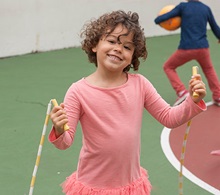 There are two words that can send your summer spirit soaring: “I’m bored!” Your child has suddenly gone from an action-packed school year to the carefree days of summer. As much as you are both happy to be done with homework for a while, all of this freedom can be problematic. You want to chill out with some lemonade yet your kids expect you to be the peppy cruise director. But it is possible for everyone to feel the joy of the season, make wonderful memories and be truly happy together. No more saying, “What can we do this summer?”
There are two words that can send your summer spirit soaring: “I’m bored!” Your child has suddenly gone from an action-packed school year to the carefree days of summer. As much as you are both happy to be done with homework for a while, all of this freedom can be problematic. You want to chill out with some lemonade yet your kids expect you to be the peppy cruise director. But it is possible for everyone to feel the joy of the season, make wonderful memories and be truly happy together. No more saying, “What can we do this summer?”
Provide Structure
Your child’s day needs a beginning, middle and end. This means more work for parents since they have to create the structure kids normally have in school. But it’s key to having a sane summer. First, kids thrive on structure and knowing what comes next. It keeps them feeling secure, avoids crankiness and gives their day purpose.
Second, maintaining some level of structure will help ease your kids back into the school year.
Create a Plan
An easy way to help provide structure is to make sure your kids know the daily plan. Talk briefly before bed about what’s in store the next day or lay it all out in the morning. Remind them (and yourself) that everyone needs to be flexible during the day and that there will also be downtime for the summer.
Make a summer calendar and write in special events, parties and trips so kids have a sense of an extended time-frame.
Set New Bedtimes
Or keep the same ones. Either way you need to have something firm in place. Summer allows you to be a bit flexible but kids still need 9 to 10 hours of sleep. Otherwise you have a cranky, moody kid who won’t even be able to smile on a trip to the amusement park. Yes, it’s ok to let the kids stay up late here and there for a special occasion.
Take a Class
The school year can be so jammed with after-school activities that your kids might have to miss out on a sport or class they really want to partake in. Take advantage of a less-scheduled summer to sign up for that special activity. The woodworking class that fills up so quickly in September probably has more room in July, anyway! Any class or even a morning camp program will provide daily structure, help give them a full experience of summer and expose them to new environments, says Dr. Bartell. Even better? You get some much-deserved time alone.
Go Outdoors
Take advantage of activities and events that are special to summertime. Go swimming, play tennis, enjoy an outdoor family concert or nature hike. Create a backyard obstacle course or treasure hunt. Have the kids help you pull out some overzealous ferns in the garden. Visit the farmers’ market and ask the kids help you choose local foods, then cook a meal together. Talk about the stars and constellations, then let them stay up late one night to study the beautiful night sky. Rainy days will mean more time inside watching movies. But it’s also the chance to go splash in muddy puddles (just go with it and do the laundry later) and hunt for worms.
Make it Memorable
The sun is shining. The breeze is refreshing and your daughter is not mercilessly teasing your son. Life is good. But while you might remember these small moments, the kids probably won’t. Incorporate a couple of memorable activities into your summer. That doesn’t mean you have to buy overpriced tickets to see the Fresh Beat Band or fly to Disneyland. Just think about your child’s specific interests and what would make her day. Sometimes the most impromptu plans makes the biggest impact.
Read!
We all know that reading books is important for kids. But the bond of reading together is what a summer lull can bring. Pull your child onto your lap, or get as physically close as they’ll let you — and read together, Dr. Ludwig suggests. Make the story come alive. Use funny voices. Act things out. Find hidden objects. And start a dialogue about the book. Set aside 20 minutes each day for reading time. Doing this will reinforce to your kids that reading is fun.
Get Creative
Kids depend too much on technology and they need to come up with their own ideas about what to do this summer. Ultimately, spending too much time with TV and the computer is just not satisfying and won’t create a memorable summer. Limit tech time to 3 hours daily. Turn off the technology and see what happens (after the whining stops). Let them use their imaginations to garden in the backyard, design their own t-shirts with fabric paint or plan a family art show.
Hire Help
Don’t feel guilty that you need a break. Summer can makes parents feel like they are on overload with an extra sense of responsibility. Hiring a sitter to come in at least once a week will provide kids with a new energy level and variety to their day. They will seriously look forward to it! Then you get to recharge or just get the shopping done without someone sneaking lots of sugary cereal into the cart. As if you wouldn’t notice…eventually.
Keep Summer Memories
Give your child a camera and let her take photos all school break of things that she feels are super cool. Maybe a Lego tower, a rose bush in full bloom or the neighbor’s dog. Hold back on directing and you’ll be able to see summer through your child’s eyes. Review the photos weekly and talk about all the adventures you had together. Help her create a memory book or online album when the season ends.
Slow Down
Parents don’t feel pressure to start the day in the summer. Begin later and go slower. When there’s no school bus to catch or traffic to beat you don’t need to be dressed and out by 7:45. Stop chasing your son around with his jeans and teach him to put them on himself — in his own time. Cook up pancakes for breakfast instead of grabbing a slice of wheat bread. Savor your coffee, don’t slurp it hurriedly. Unless you have an a.m. activity planned, use the morning to relax. Summer goes by so fast!
We want to hear from you. Set up an appointment today and find out how much your children will love Premier Academy!
Premier Academy Child Enrichment Center, offers childcare in Omaha, Nebraska for infants, toddlers, preschool, and pre-k children.
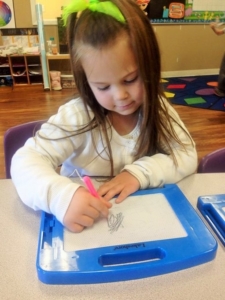 The first day can be hard on both parents and children. For many, it’s the first time that they will have been away from each other for such an extended period of time. Even though many kids will be excited for their first day of preschool, it is important to know that new experiences can bring some apprehensions.
The first day can be hard on both parents and children. For many, it’s the first time that they will have been away from each other for such an extended period of time. Even though many kids will be excited for their first day of preschool, it is important to know that new experiences can bring some apprehensions.
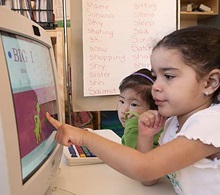 Most preschools will start accepting children at around age of 2, but that doesn’t mean your child is ready for preschool when they reach this age. Readiness for preschool has more to do with where your child is developmentally.
Most preschools will start accepting children at around age of 2, but that doesn’t mean your child is ready for preschool when they reach this age. Readiness for preschool has more to do with where your child is developmentally.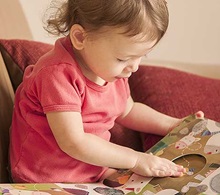 More and more, research tells us that our children’s healthy development depends on safe and positive experiences during the first few years of life. If you are a parent who works during these early years, choosing good
More and more, research tells us that our children’s healthy development depends on safe and positive experiences during the first few years of life. If you are a parent who works during these early years, choosing good 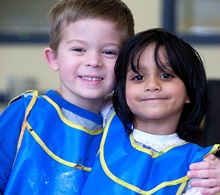 Finding
Finding  Brain development is highest during the first four years of life. The brain is forming important neural paths to help develop the child’s ability to perform and function and learn well. Their brain absorbs information and stores it, often feeling saturated with new input. Your child can benefit when interacting in a quality preschool which is content rich with appropriate information and materials. We have a first-rate staff of professional, certified teachers who are dedicated to providing Omaha and Elkhorn preschool children with the very best care and education available anywhere.
Brain development is highest during the first four years of life. The brain is forming important neural paths to help develop the child’s ability to perform and function and learn well. Their brain absorbs information and stores it, often feeling saturated with new input. Your child can benefit when interacting in a quality preschool which is content rich with appropriate information and materials. We have a first-rate staff of professional, certified teachers who are dedicated to providing Omaha and Elkhorn preschool children with the very best care and education available anywhere.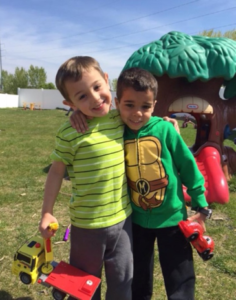 A child is one of the most important members of society. There is no comparison when valuing life. For parents, one of the most difficult situations they are faced with is to entrust their child, whether an infant, toddler, or school aged child, into a stranger’s care. Unfortunately, both parents need to work, or the child comes from a split family, and sacrifices must be made, and daycare becomes essential. Premier Academy understands the sacrifices that parents make for their children and provides premium childcare that is not just babysitting, but, an environment to stimulate the child to learn and explore the world through their own eyes.
A child is one of the most important members of society. There is no comparison when valuing life. For parents, one of the most difficult situations they are faced with is to entrust their child, whether an infant, toddler, or school aged child, into a stranger’s care. Unfortunately, both parents need to work, or the child comes from a split family, and sacrifices must be made, and daycare becomes essential. Premier Academy understands the sacrifices that parents make for their children and provides premium childcare that is not just babysitting, but, an environment to stimulate the child to learn and explore the world through their own eyes. There are two words that can send your summer spirit soaring: “I’m bored!” Your child has suddenly gone from an action-packed school year to the carefree days of summer. As much as you are both happy to be done with homework for a while, all of this freedom can be problematic. You want to chill out with some lemonade yet your kids expect you to be the peppy cruise director. But it is possible for everyone to feel the joy of the season, make wonderful memories and be truly happy together. No more saying, “What can we do this summer?”
There are two words that can send your summer spirit soaring: “I’m bored!” Your child has suddenly gone from an action-packed school year to the carefree days of summer. As much as you are both happy to be done with homework for a while, all of this freedom can be problematic. You want to chill out with some lemonade yet your kids expect you to be the peppy cruise director. But it is possible for everyone to feel the joy of the season, make wonderful memories and be truly happy together. No more saying, “What can we do this summer?” Did you know that most camp planning takes place in early winter and spring? Just when you were getting over the holiday stress and still bundled in your Snuggie, you need to find the place for your child to get out of the house — um, we mean thrive — this summer with affordable summer programs in Omaha, Nebraska.
Did you know that most camp planning takes place in early winter and spring? Just when you were getting over the holiday stress and still bundled in your Snuggie, you need to find the place for your child to get out of the house — um, we mean thrive — this summer with affordable summer programs in Omaha, Nebraska. Family vacations are great for bonding with loved ones as you get away from your normal routines. But a family vacation can sometimes feel like no vacation at all for parents chasing after kids. Parents need time to themselves, and not just for romance, but to relax, reconnect and revisit what brought them together.
Family vacations are great for bonding with loved ones as you get away from your normal routines. But a family vacation can sometimes feel like no vacation at all for parents chasing after kids. Parents need time to themselves, and not just for romance, but to relax, reconnect and revisit what brought them together.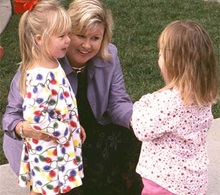 Did you know that most camp planning takes place in early winter and spring? Just when you were getting over the holiday stress and still bundled in your Snuggie, you need to find the place for your child to get out of the house — um, we mean thrive — this summer.
Did you know that most camp planning takes place in early winter and spring? Just when you were getting over the holiday stress and still bundled in your Snuggie, you need to find the place for your child to get out of the house — um, we mean thrive — this summer.